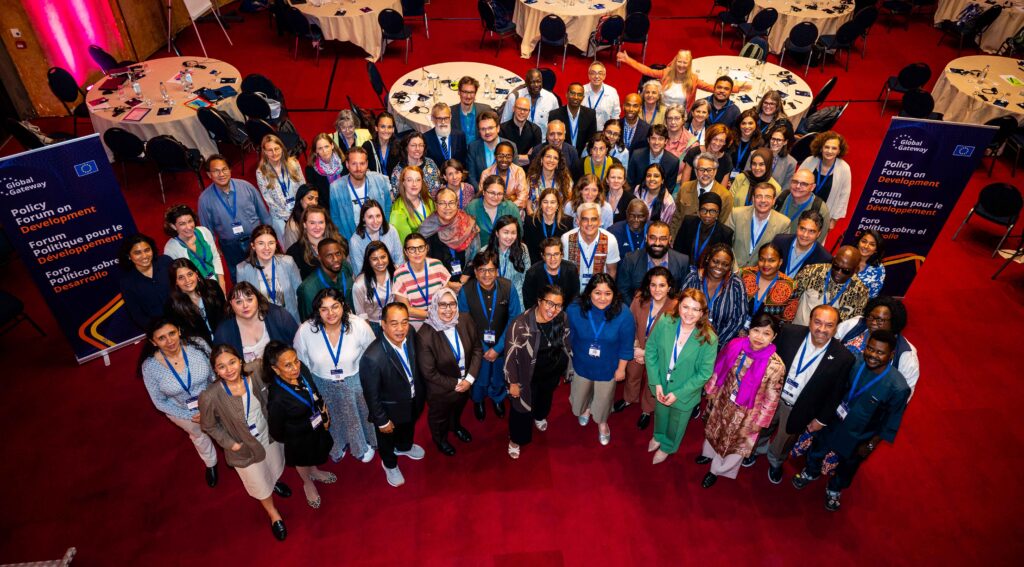GNDR and our member, ENDA Energie, had the opportunity to participate in June’s Global Meeting of the Policy Development Forum (PFD) in Brussels. The forum came at a crucial time with cuts in development cooperation increasing in Europe, following the US government’s abrupt decision to end USAID.
The European Union’s (EU) external position and policies for international cooperation are undergoing a paradigm shift. Following reprioritisation highlighted in President von der Leyen’s Political Guidelines, the EU’s economic interests are now tied to international cooperation and its foreign policy. Indeed, the Global Gateway strategy features a greater role for Member States (through the Team Europe approach) and for financing institutions (European Investment Bank), which are being called upon to respond to growing funding gaps and the mounting needs of other countries.
The agenda focused on several key issues, such as the role of the EU in promoting safe and enabling spaces for the development of an organised civil society to contribute to development. It also featured a discussion on how to advance engagement in complex contexts and fragile states, as well as how to address forced displacement. In addition, participants analysed the impact of Global Gateway on human development policy and locally-led development. Finally, discussions focused on the upcoming EU budget and the negotiations on the Multiannual Financial Framework (MFF).
